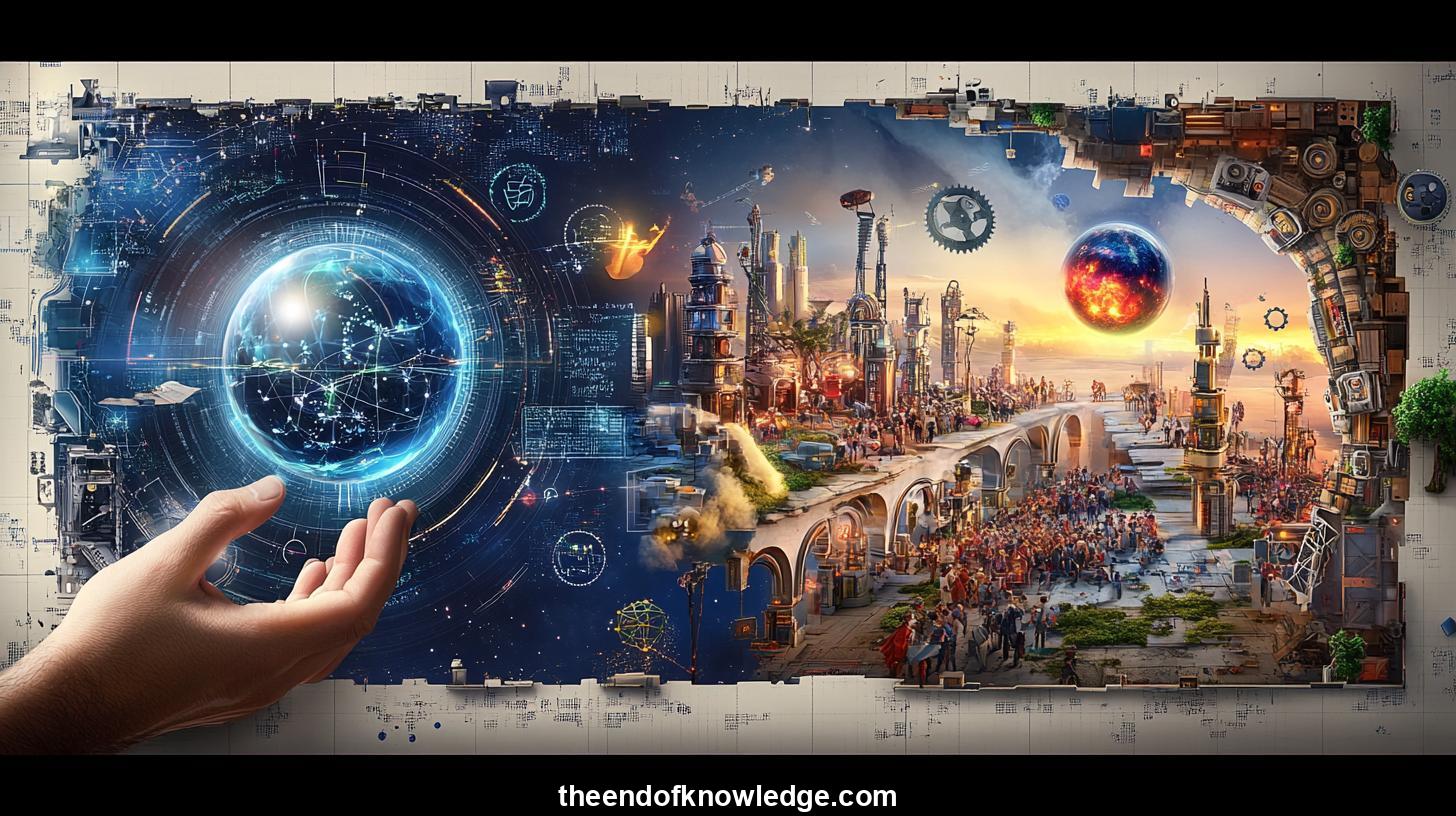 >
>
Concept Graph, Resume & KeyIdeas using DeepSeek R1 :
Resume:
discusses the concept of artificial intelligence (AI), challenging common myths and exploring its potential to surpass human intelligence. It begins by defining AI as a tool created by humans, emphasizing that it is not consciousness or emotion but rather a system designed to process data and perform tasks. The authors argue that while AI has advanced significantly, it remains a device rooted in physical hardware and software, lacking the complexity of human thought and emotion. They highlight the importance of demystifying AI, asserting that it is not a conscious being but a product of human ingenuity.30 Key Ideas:
1.- AI is a human invention, not consciousness or emotion, but a data-processing tool.
2.- AI systems lack human complexity, operating within programmed algorithms and data.
3.- Demystifying AI is crucial to understanding its limitations and potential.
4.- AI reflects creators' intentions and values, necessitating ethical considerations.
5.- Transparency and accountability are vital in AI development and deployment.
6.- AI could displace jobs and concentrate power, requiring balanced integration strategies.
7.- The singularity, where AI surpasses human intelligence, is theoretically possible but not inevitable.
8.- A human-centered approach to AI ensures it complements rather than replaces humans.
9.- Maintaining human agency and ethical frameworks guides AI progress responsibly.
10.- AI's potential to transform society positively depends on responsible development.
11.- Ongoing dialogue among experts from various fields is essential for addressing AI challenges.
12.- A nuanced understanding of AI recognizes both its limitations and transformative capacity.
13.- AI systems operate on physical hardware and software, lacking human-like consciousness.
14.- Ethical considerations in AI development ensure it serves humanity's best interests.
15.- The neutrality of AI is a myth, as systems reflect their creators' biases and values.
16.- Regulation and ethical guidelines are necessary to prevent misuse of AI technologies.
17.- AI could enhance human life by solving complex problems and improving decision-making.
18.- The integration of AI into society requires careful planning to mitigate negative impacts.
19.- Collaboration across disciplines ensures comprehensive approaches to AI development.
20.- Public engagement and education about AI foster informed discussions and debates.
21.- AI systems lack human emotions and creativity, limiting their scope of application.
22.- The potential for AI to concentrate power highlights the need for democratic oversight.
23.- Ensuring AI aligns with human values is critical for its beneficial development and use.
24.- AI's impact on employment requires strategies to upskill workers and adapt economies.
25.- The development of AI raises fundamental questions about human identity and purpose.
26.- AI systems can process vast amounts of data but lack human intuition and judgment.
27.- Ethical AI development involves addressing issues like bias, privacy, and accountability.
28.- AI has the potential to solve global challenges, such as climate change and healthcare.
29.- The responsible development of AI requires balancing innovation with ethical considerations.
30.- AI is a tool that, when used wisely, can enhance human capabilities and improve society.
Interviews by Plácido Doménech Espí & Guests - Knowledge Vault built byDavid Vivancos 2025